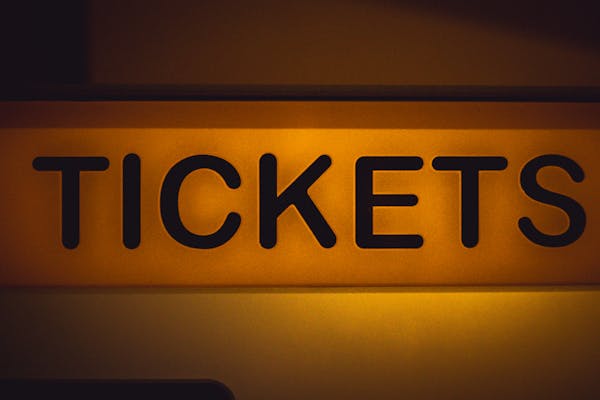No products in the cart.
Selling Out the Room: How to Drive Ticket Sales Through Strategic Event Marketing
By Hadley Chase
How to Drive Ticket Sales Through Strategic Event Marketing
Every event—whether a high-profile film premiere, a regional SME expo, or a small literary salon—comes with its share of moving parts. But when ticket sales enter the picture, everything shifts. You’re no longer just managing a gathering; you’re selling an experience. And experiences, when commodified, require structure, psychology, and strategic delivery.
Too often, event organizers rely on word-of-mouth, hoping that an enthusiastic ripple will turn into a wave. Sometimes it does. Most times, it doesn’t. In a noisy digital age, hope is not a plan.
What you need is event marketing with edge, clarity, and reach. Below are practical, data-informed tactics for turning your next event into a sold-out success—where the seats fill early, and the audience walks away impressed.
1. Strategic Partnerships That Expand Reach
Don’t think of partnerships as decoration. Think of them as distribution. Done right, they become multipliers—offering you new audiences, social proof, and layered value.
Hosting a wellness retreat? Team up with boutique hotels or health-conscious cafes to position it as a weekend escape. Launching a business bootcamp? Approach startup-friendly banks, coworking spaces, or digital payment platforms that already serve your ideal attendees. The best partnerships align with your event’s theme and audience intent—and give both parties something to gain.
Smart partnerships also allow you to bundle experiences. Think: “Attend the summit, stay at X Hotel with a discount, and enjoy dinner at Y.” You’re not just selling tickets. You’re selling a moment.
2. Dynamic Discounting—With Guardrails
Discounting gets a bad rap, but when wielded with intent, it’s a high-leverage tool. The key is to tie every discount to a strategic purpose—whether that’s early momentum, social amplification, or community engagement.
Try these:
Offer tiered pricing for early birds.
Give influencers and loyal attendees unique referral codes.
Create group deals for teams or organizations.
Run limited-time flash offers to create urgency.
But monitor the margins. Your event should not bleed revenue in the name of volume. Measure uptake, cap redemptions where needed, and ensure your perceived value remains intact.
3. Your Personal Ecosystem Is a Billboard—Use It
Every digital touchpoint you control should quietly push your event forward. Add a promotional banner to your email signature. Update your LinkedIn header. Turn your social media bios into entryways. If you own a site, use strategic pop-ups and homepage real estate to promote the event.
You’re not being “salesy”—you’re being intentional. Your contacts, followers, and site visitors are already paying attention. Give them something to act on.
4. Activate Your Speakers—Fully
One of the most overlooked assets in event marketing is the speaker’s network. These are individuals with reach, reputation, and relevant followers. Don’t just include them in the lineup—equip them.
Provide tailored creatives they can share on social media. Invite them to co-author a blog post for your site. Offer short scripts or talking points they can adapt to promote the event.
This does two things. It validates the event through association, and it places your message in front of audiences who already trust the speaker’s voice.
And let’s be honest—no speaker wants to address an empty room. Most will gladly lend their voice to get more people in the seats. Make it easy for them to do so.
5. Leverage Your Alumni
Past attendees are not just satisfied customers—they’re potential advocates. Reach out with early access, VIP upgrades, or loyalty codes. Ask them to share testimonials, tag friends, or even bring someone new along.
People trust people, and if your last event delivered value, this network will be your warmest pipeline.
6. Align With Behavior, Not Just Buzzwords
Don’t chase what’s trending. Understand what’s changing. For instance:
Mobile-first ticketing and one-click checkout are no longer luxuries; they’re expectations.
Integrating QR code access, real-time event updates via SMS, and digital passes enhances convenience.
Data shows hybrid events—physical + virtual—continue to grow in relevance. If your reach can scale digitally, consider streaming.
Build your strategy around how people behave, not just what they say.
The Bottom Line
Events are not just scheduled moments. They’re emotional investments. People buy tickets when they believe the experience is worth it—when it feels curated, credible, and compelling.
If your goal is modest reach and word-of-mouth, these tactics may give you a good return. But if you’re aiming higher—if you’re ready to turn your event into a movement, a magnet, a sold-out sensation—you need a partner that understands not just marketing, but meaning.
That’s where we come in.
At TRW Consult, we don’t just market events. We design demand. From political rallies to corporate launches, we craft experiences that sell—and stay remembered.
If you’re ready to build a campaign that fills the room and leaves an impression, brief us today.









